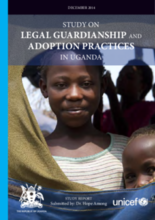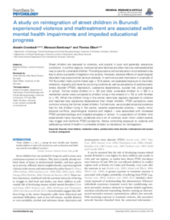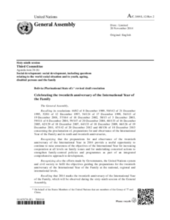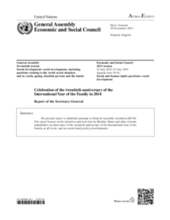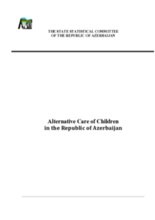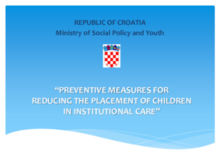Displaying 1031 - 1040 of 1759
This report discusses concerns raised by participants of Thematic Area 2 (Intercountry Adoption, Countries of Origin, and Biological Families) of the International Forum on Intercountry Adoption and Global Surrogacy held in August 2014.
The purpose of this paper is to suggest the value of tracking population-based outcomes for children as a key component of monitoring and evaluating the effectiveness of a national child protection system.
This executive summary is the first document in a series of six reports, from the International Institute of Social Studies of Erasmus University (ISS), about the International Forum on Intercountry Adoption and Global Surrogacy, held in August 2014.
This report summarises discussions of participants in Thematic Area 5 (Global Surrogacy Practices) of the International Forum on Intercountry Adoption and Global Surrogacy held in August 2014.
This study on legal guardianship and adoption practices in Uganda was designed to explore and get insight into current care practices.
This article outlines findings from research on current and former street children in Burundi, that assesses the extent to which violence can affect children’s mental well-being and psychological functioning, and thus limit their reintegration.
A brief revised draft resolution from the UN General Assembly on the twentieth anniversary of the International Year of the Family and its recognition of the continued importance of “giving due consideration to advancing family policy development in the ongoing discussion on the post-2015 development agenda.”
The present report is submitted pursuant to General Assembly resolution 68/136. The report focuses on the initiatives and activities by Member States and other relevant stakeholders in observance of the twentieth anniversary of the International Year of the Family, at all levels, and on recent family policy developments.
This report is prepared within the MONEE project of UNICEF Regional Office for CEE/CIS. It provides an overview of alternative care in Azerbaijan.
On 10 September 2014, UNICEF and the Permanent Mission of Bulgaria co-hosted a high level Lunchtime Discussion on The right of children below three years to live in a caring and supportive family environment: examples from Central and Eastern Europe and Central Asia.The discussion took place on the margins of the September meeting of the UNICEF Executive Board and brought together over 80 participants, including members of the UNICEF Executive Board, representatives of the Permanent Missions to the UN from the CEE/CIS region, international organizations, NGOs, high level UNICEF and National Committee staff. Representatives from Croatia presented on preventing institutionalization of children.

